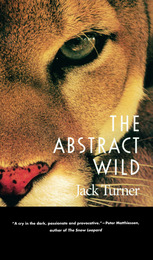
How wild is wilderness and how wild are our experiences in it, asks Jack Turner in the pages of The Abstract Wild. His answer: not very wild. National parks and even so-called wilderness areas fall far short of offering the primal, mystic connection possible in wild places. And this is so, Turner avows, because any managed land, never mind what it's called, ceases to be wild. Moreover, what little wildness we have left is fast being destroyed by the very systems designed to preserve it.
Natural resource managers, conservation biologists, environmental economists, park rangers, zoo directors, and environmental activists: Turner's new book takes aim at these and all others who labor in the name of preservation. He argues for a new conservation ethic that focuses less on preserving things and more on preserving process and "leaving things be." He takes off after zoos and wilderness tourism with a vengeance, and he cautions us to resist language that calls a tree "a resource" and wilderness "a management unit."
Eloquent and fast-paced, The Abstract Wild takes a long view to ask whether ecosystem management isn't "a bit of a sham" and the control of grizzlies and wolves "at best a travesty." Next, the author might bring his readers up-close for a look at pelicans, mountain lions, or Shamu the whale. From whatever angle, Turner stirs into his arguments the words of dozens of other American writers including Thoreau, Hemingway, Faulkner, and environmentalist Doug Peacock.
We hunger for a kind of experience deep enough to change our selves, our form of life, writes Turner. Readers who take his words to heart will find, if not their selves, their perspectives on the natural world recast in ways that are hard to ignore and harder to forget.
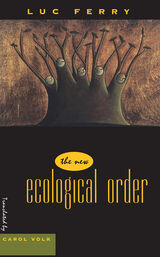
Traditional ecological movements, or "democratic ecology," seek to protect the environment of human societies; they are pragmatic and reformist. But another movement has become the refuge both of nostalgic counterrevolutionaries and of leftist illusions. This is "deep ecology." Its followers go beyond practical critiques of human greed and waste: they call into question the very possibility of human coexistence with nature. The human species is no longer at the center of the world, but subject to a new god called Nature. For these purists, man can only soil the harmony of the universe. In order to secure natural equilibrium, the only solution is to grant rights to animals, to trees, and to rocks.
Ferry launches his critique by examining early European legal cases concerning the status and rights of animals, including a few notorious cases where animals were brought to trial, found guilty, and publicly hanged. He then demonstrates that German Romanticism embraced certain key ideas of the deep ecology movement concerning the protection of animals and the environment. Later adopted by the Nazis, many of these ideas point to a profoundly antihumanistic component of deep ecology that is compatible with totalitarianism.
Ferry shows how deep ecology casts aside all the gains of human autonomy since the Enlightenment. He deciphers the philosophical and political assumptions of a movement that threatens to infantalize human society by preying on the fear of the authority of a new theological-political order. Far from denying our "duty in relation to nature," The New Ecological Order offers a bracing caution—against the dangers of environmental claims and, more important, against the threat to democracy contained in the deep ecology doctrine when pushed to its extreme.
"A book of intellectual power, full of insights, invention, and not without temerity, from one of the best political philosophers today."—Le Figaro
"Few books have analyzed in depth this phenomenon of the ecological movement as the most recent book by Luc Ferry has done. . . . It is a book that absolutely must be read."—Le Point
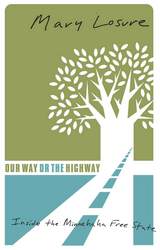
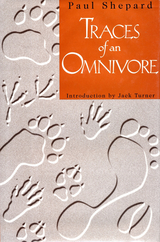
Paul Shepard is one of the most profound and original thinkers of our time. He has helped define the field of human ecology, and has played a vital role in the development of what have come to be known as environmental philosophy, ecophilosophy, and deep ecology -- new ways of thinking about human-environment interactions that ultimately hold great promise for healing the bonds between humans and the natural world. Traces of an Omnivore presents a readable and accessible introduction to this seminal thinker and writer.
Throughout his long and distinguished career, Paul Shepard has addressed the most fundamental question of life: Who are we? An oft-repeated theme of his writing is what he sees as the central fact of our existence: that our genetic heritage, formed by three million years of hunting and gathering remains essentially unchanged. Shepard argues that this, "our wild Pleistocene genome," influences everything from human neurology and ontogeny to our pathologies, social structure, myths, and cosmology.
While Shepard's writings travel widely across the intellectual landscape, exploring topics as diverse as aesthetics, the bear, hunting, perception, agriculture, human ontogeny, history, animal rights, domestication, post-modern deconstruction, tourism, vegetarianism, the iconography of animals, the Hudson River school of painters, human ecology, theoretical psychology, and metaphysics, the fundamental importance of our genetic makeup is the predominant theme of this collection.
As Jack Turner states in an eloquent and enlightening introduction, the essays gathered here "address controversy with an intellectual courage uncommon in an age that exults the relativist, the skeptic, and the cynic. Perused with care they will reward the reader with a deepened appreciation of what we so casually denigrate as primitive life -- the only life we have in the only world we will ever know."
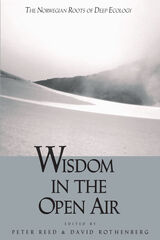
READERS
Browse our collection.
PUBLISHERS
See BiblioVault's publisher services.
STUDENT SERVICES
Files for college accessibility offices.
UChicago Accessibility Resources
home | accessibility | search | about | contact us
BiblioVault ® 2001 - 2024
The University of Chicago Press









